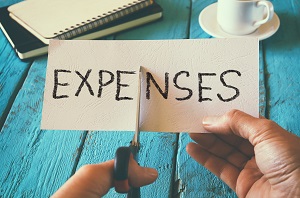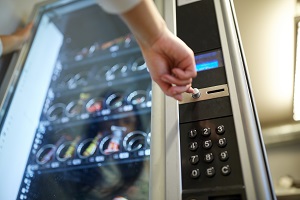A homeowners association thrives on assessments — fees regularly charged to residents of the community. It is the main source of income for any HOA. But, what if they’re not enough to cover all the expenses? Is there a way to increase HOA cashflow without raising dues?
Proven Methods to Increase HOA Cashflow
So, your HOA needs more money. Maybe you didn’t budget correctly or maybe too many unexpected expenses popped up — it happens to almost all associations. The conclusion most HOAs arrive at is to raise monthly assessments. But if you don’t want to increase your fees or dip into the reserves, what else can you do? Let’s take a look at the nine best ways to increase HOA cash flow without raising HOA dues.
1. Cut Back on Spending
 The simplest method to increase HOA cashflow is to cut back on spending. Of course, an HOA’s primary goal is to maintain the community with its best interests in mind. So, if you do decide to cut corners, make sure it doesn’t jeopardize the community’s well-being.
The simplest method to increase HOA cashflow is to cut back on spending. Of course, an HOA’s primary goal is to maintain the community with its best interests in mind. So, if you do decide to cut corners, make sure it doesn’t jeopardize the community’s well-being.
For instance, it would be irresponsible to use money intended for playground repairs on something else. By doing so, you’ll be putting the safety of children on the line.
When reducing your spending, only do so on items you can compromise on. Perhaps you can delay installing a new slide for the pool or only turn on sprinklers once a week instead of twice. The less you spend, the more money you save. You can then use this money to pay for more pressing expenses.
It’s also a good idea to review your contracts with vendors. You might be able to renegotiate prices, especially if the contract is almost up for renewal. If you’ve been a long-time customer, see if you can get a special loyalty discount.
2. Rent Out HOA Facilities
Your community association likely has a number of facilities available for member use. From the community pool to the spacious clubhouse, your HOA has plenty of events places up for grabs. Consider opening these facilities for rentals. If you have an unoccupied parking lot or unused storage space, allow residents to rent them out as well. An HOA has many open spaces you can use to earn extra income.
3. Hold Fundraising Events
If you don’t want to raise homeowner assessments, you can increase HOA cash earnings by holding fundraisers instead. Residents don’t like it when you impose a higher fee on them. But, if they’re presented with an opportunity to willingly help the HOA, they’re likelier to donate or pay.
When planning your fundraiser, it’s important to consider your target demographic. Tailor your event to meet their interests and go from there. For instance, if your HOA has a younger crowd, a small concert or live band might do the trick. Bake-sales, auctions, plant sales, and workshops are great ideas, too.
4. Invest
Some HOA board members shudder at the very idea of investments, only because they don’t quite understand them, but investments don’t have to be complicated. Even the simplest of things, such as opening a savings account, already count as an investment. If you want to take it one step further, consider investing in bonds or treasury bills. You must remember, though, to focus on risk. Make sure to invest in something that offers low risk with a high yield. When in doubt, ask your HOA manager for help.
5. Get Newsletter Ads
“Who would ever want to take out an ad in a community newsletter?” That’s a question a lot of HOA boards ask, but you’d be surprised at the number of interest parties. Get in touch with local businesses and see if they’d like to advertise in your newsletter. They can reach a broader market, and you can earn a little extra money in the process. It’s a win-win. Keep in mind, though, that this method usually works better with larger communities, where there’s a bigger audience.
6. Offer Extra Services
HOA fees typically cover services like snow removal or landscaping, but there are many more you can explore. You can set up services that cater to pet owners, such as grooming or walking. Alternatively, you can offer maid or home cleaning services and even babysitting. Your HOA can either assign employees to do these tasks or partner with a contractor. If you choose the latter, make sure to include in your contract that your HOA gets a cut of the revenue.
7. Place Laundry and Vending Machines
 If you don’t already have it, a laundromat works great for associations looking to increase HOA cashflow. Not all homeowners can afford the luxury of buying and installing washing machines in their homes.
If you don’t already have it, a laundromat works great for associations looking to increase HOA cashflow. Not all homeowners can afford the luxury of buying and installing washing machines in their homes.
By opening a laundromat, your HOA can earn extra money and provide an easy way for homeowners to wash their clothes simultaneously. Consider installing vending machines, too. Residents can get hungry or thirsty while waiting for their clothes to wash or dry.
Of course, you must first do ample research to ensure your HOA won’t lose money in the process. Before committing to the decision, see if homeowners in your community are even interested. If residents don’t have a need for these things, then you’re basically just throwing money away.
Opening a laundromat requires a sizable capital, though, depending on the brand and number of coin-operated machines you intend to buy. As such, it’s best to only go with this method if you want to increase cash flow long-term.
8. Get a Line of Credit
A line of credit is a savior for HOAs who are in dire need of money. It works basically like a credit card. When you successfully apply for a line of credit, your HOA will receive a checkbook that you can use for any and all expenses. You’ll need to pay for them in the future, though, so you still have to come up with a way to boost your earnings. Contact your bank or loan provider for more information.
9. Charge a Special Assessment
While not technically part of regular HOA dues, a special assessment is still charged to homeowners to cover unexpected expenses. Most HOA boards try to avoid levying special assessments, as a majority of residents dislike them. But, if your HOA really needs the income and has exhausted all other ways, a special assessment is the way to go.
Keep in mind, though, that certain state laws apply to special assessments. For instance, in California, an HOA requires a majority membership vote to levy a special assessment that is greater than 5% of the gross expenses budgeted for the year. It’s also a good idea to refer to your governing documents for any provisions concerning special assessments.
More Money, Fewer Problems
Anyone with experience in HOA management knows that fees are the association’s primary source of income. Without fees, an HOA would simply fall apart. But, if your HOA needs extra money, there are ways you can increase HOA cashflow without raising fees or dipping into the reserves.
See if you can cut back on spending or rent out your facilities. You can also make wise investments, hold fundraisers, open newsletters to ads, or offer extra services. Every HOA must also have a line of credit prepared. The very last option is to charge special assessments.
If your HOA is having trouble with the budget process or earning money, it may be time to contact a remote HOA management company for help. In that case, give us a call anytime.
RELATED ARTICLES:
- 6 HOA Financial Mistakes That Can Be Devastating To Your Community
- What Is An HOA Fee? What Does It Cover?
- The Pros And Cons Of Low HOA Fees







